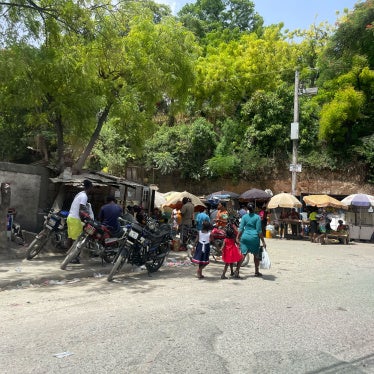In Colombia, women can be imprisoned for up to four and a half years for having abortions even in cases of rape or when their lives are at risk. In a brief to Colombia’s Constitutional Court, Human Rights Watch said the country’s penal sanctions for abortion are inconsistent with international human rights obligations and should be declared unconstitutional.
"Women should be not sent to prison for having abortions,” said Marianne Mollmann, Women's Rights researcher at Human Rights Watch. “Colombia’s restrictive abortion laws violate women’s basic human rights and should be repealed.”
On April 14, Colombian lawyer Mónica del Pilar Roa López, project director at Women’s Link Worldwide, requested the court to review the country’s law on abortion and declare it unconstitutional. Roa’s office was broken into on June 16 and two computers as well as confidential files were stolen. Human Rights Watch is concerned for the safety of all personnel working on this case.
An estimated 450,000 abortions occur every year in Colombia. Recent studies indicate that a higher proportion of adolescent girls than adult women undergo illegal abortions. The consequences of illegal abortions are a leading cause of maternal mortality since illegal and unsafe abortion causes medical complications that can be fatal.
The United Nations treaty bodies that monitor the main international human rights conventions have repeatedly insisted that abortion must be decriminalized at least where the pregnant woman’s life or health is in danger, or in cases of incest or rape. Several of these U.N. bodies have openly criticized Colombia’s restrictive abortion laws, noting that they discriminate against women and violate their right to life and health.
In its submission to the Colombian Constitutional Court, Human Rights Watch also cited findings by regional human rights bodies. The Inter-American Commission on Human Rights has said that its main human rights treaty, the American Convention on Human Rights, is compatible with a woman’s right to access safe and legal abortions.
Colombia’s law prohibits abortion in all circumstances. The penalty is lighter when the pregnancy is the result of rape (or “nonconsensual artificial insemination”). In 2000, the Colombian Congress amended the penal code, adding the possibility for a judge to waive penal sanctions on a case-by-case basis. However, judges have discretion to waive penal sentences only in cases of rape and under two further conditions: if the abortion occurs in “extraordinary situations of abnormal motivation” (an ambiguous clause that requires judicial interpretation) and if the judge considers the punishment “unnecessary.” However, a later amendment in 2005 also extended the maximum sentences for abortion from three years in prison to four and a half.
“Instead of amending its laws to comply with international human rights obligations, the Colombian authorities have only imposed harsher punishments on women for exercising their human rights,” said Møllmann. “The court has an obligation to reverse this anti-constitutional development.”








